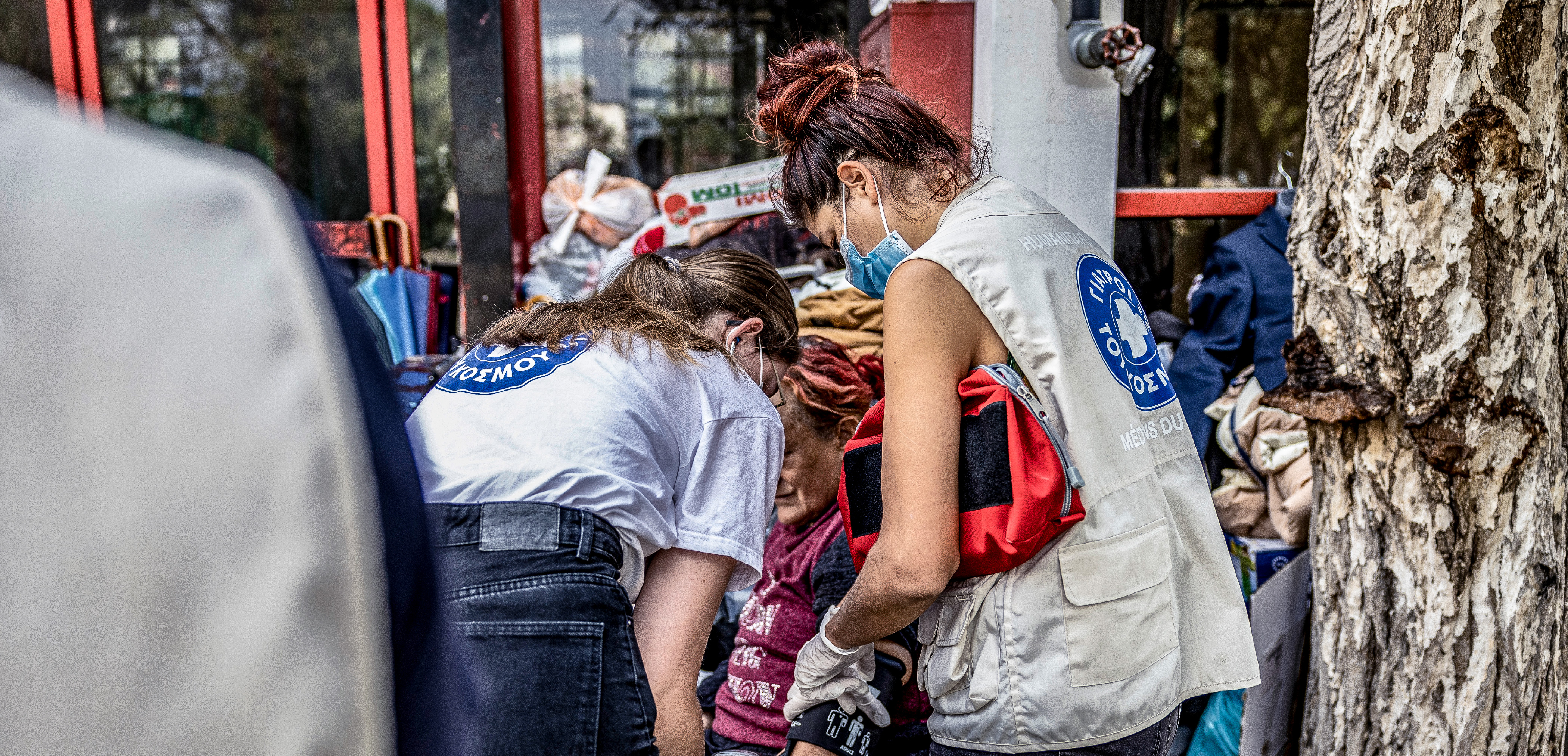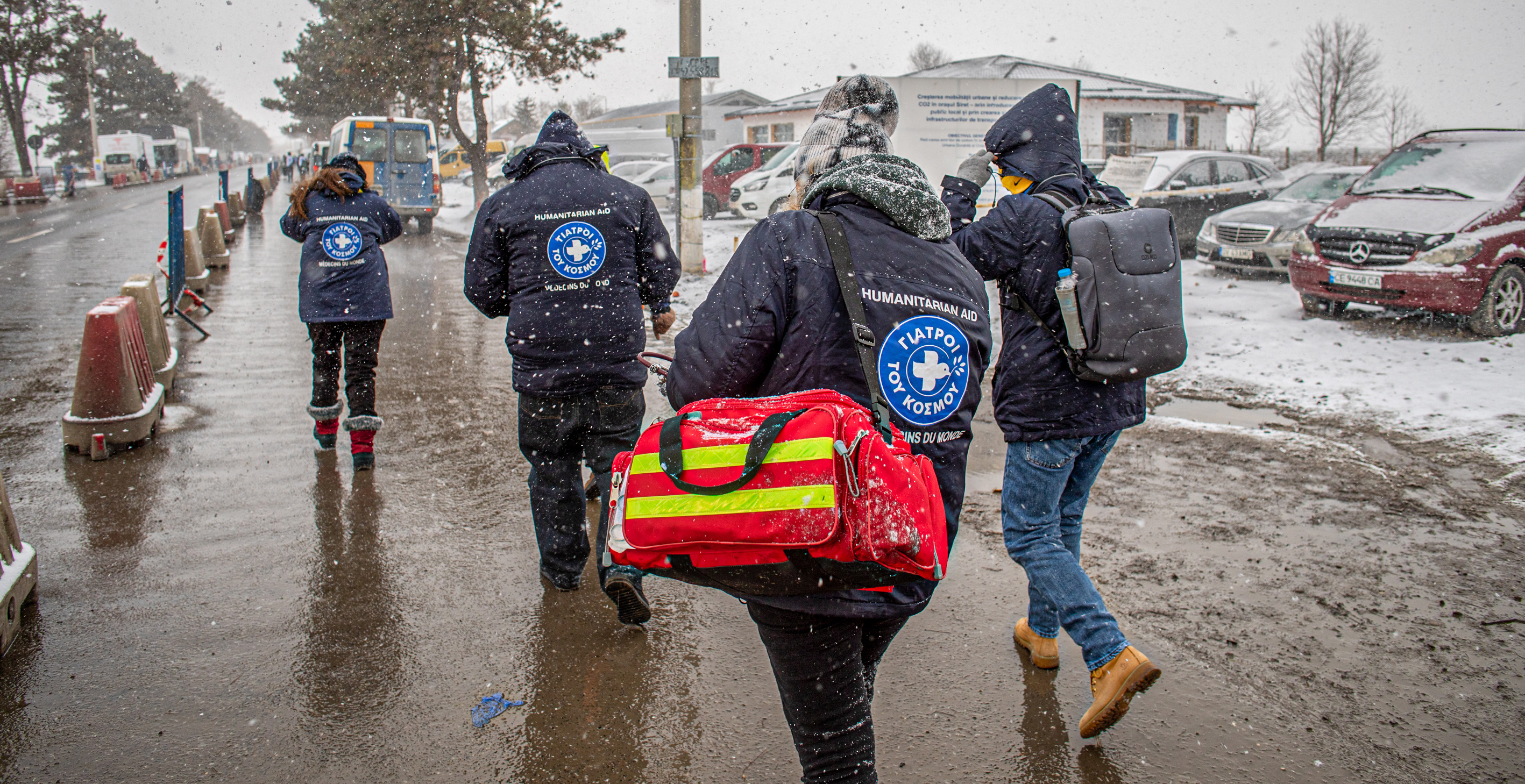COVID-19, CLIMATE CRISIS, POLITICAL UNREST
2022 was a year in which several records were broken, unfortunately in a negative way. As Europe is in the aftermath of the pandemic, it has to deal with the climate crisis and global conflicts. The war in Ukraine has caused the largest wave of refugees in Europe since the end of World War II. More than seven million Ukrainians left the country and fled to other European countries and another 6.9 million were displaced internally, according to the United Nations High Commissioner for Refugees (UNHCR). Globally, the number of displaced persons for the first time exceeded 100 millions.
UKRAINE
MdM-Greece from the first moment stood by the side of the Ukrainian people, sending humanitarian aid and mobile medical units. One year later, millions of people are still left without basic services as a result of the war. MdM-Greece remain in Ukraine, with a stable team of health professionals and two mobile units operating in the Chernivtsi, Ivano- Frankivsk, and Odessa regions.
MdM-Greece work in the country since the beginning of the war has focused on coordinating the dispatch of medical teams and cooperating with the health authorities. With the aim of reducing disruptions in the provision of critical healthcare services, especially attention has been given to mental health support, after so many months of the war.
At the same time, the war in Ukraine caused a great increase in energy and food costs, with the Food and Agriculture Organization’s food price index (FAO) of the UN reaching an all-time high in March and the cost of gas in Europe reaching record highs. The annual inflation in the Eurozone went up steadily to 10.6% in October, the biggest increase since the index was introduced in 1997. In addition, conflicts have risked the health and welfare of millions of people in Afghanistan, Ethiopia, Africa, Syria and Yemen.
CLIMATE CHANGE
At the same time, the effects of climate change are dramatic. Society is faced with serious environmental issues, facing major natural disasters. In many parts of our planet temperatures in 2022 were high and Europe had the hottest summer on record. Significantly, more than 6 million acres of forest have been reduced to ash by wildfires due to high temperatures. In Greece, the fires of 2022 led to the destruction of 22,444 hectares of land. And while some countries were living the fiery nightmare, others had to deal with extreme storms. Rainfall and monsoons caused flooding and landslides in Pakistan. The floods destroyed 1.7 million homes, affected 32 million people and killed more than 1,700 people. The World Bank estimates that the total damage exceeded $14.9 billion and would need about $16.3 to cover the cost of the damage.
At the same time, Europe in 2022 was affected by drought. A typical example is that water levels in France’s rivers were so extremely low, that they forced the French authorities to impose water restriction measures.
VULNERABLE POPULATIONS
In fact, the natural disasters caused the largest number of internally displaced persons. In 2022, 71.1 million people were registered as internally displaced, an increase of 20% compared to the previous year, according to a common report of the Internal Displacement Monitoring Center (IDMC) and the Norwegian Refugee Council (NRC). Only the drought has caused the displacement of 3.7 million people in Somalia and 4.2 million people in Ethiopia, according to UNICEF.
Almost three quarters of the internally displaced people are in ten countries: Syria, Afghanistan, DR Congo, Ukraine, Colombia, Ethiopia, Yemen, Nigeria, Somalia and Sudan.
At the same time the increasingly frequent extreme weather phenomena create conditions for new pandemics. According to the World Health Organization, most countries of the world have entered a trajectory of normality, new threats to public health are emerging. Hospital-acquired infections and multi-resistant microbes may become a major public health problem, while climate change may result in new pandemics.
CIVIL SOCIETY
MdM-Greece believes that the Society should have the immediate ability to intervene therapeutically in emergency situations, motivating resources and people directly from the population, without the complexity that other processes often exhibit. So, making the connection between the ordinary citizen and the state mechanism necessary, the impact of the Civil Society is crucial as the formulation and implementation of inclusive, effective and public policies.
So, more cooperation is needed, pluralism and stronger partnerships between the state and civil society, with a goal of effective and sustainable multi-level cooperation. Doctors of the World continue to serve their statutory principles by working together with vulnerable communities, envisioning social change.

